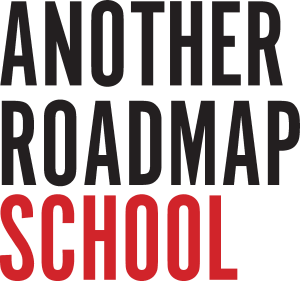by Mareia Quintero Rivera, Puerto Rico Working Group
[translation: Bogotá group]
“To much fog, to much darkness, is what colonial education leaves on a settler” it was written by the Puerto Rican thinker and educator Eugenio María Hostos, who had been exiled from his homeland – spanish colony- provided foundations for a Latin American pedagogy for freedom, specially from Chile and Dominican Republic.
For sure Hostos did not imagine, how relevant and painful will resonate his words in successive generation ears. The hero´s death in 1903 coinciden with the establisment of the firs public education system in Puerto Rico. But a different one of what he had dreamt of , because it would be another colonial power -United States- the one which provide it on the roster as spoils of war in 1898. An educational public education system articulated as focus of empire assimilation for Puerto Ricans, in order to imposing english teaching on a population which did not know about that language and promoting children identification with american symbols.
Education, in our view, is related to the recognize and question possibility that Antonio Gramsci called
common sense,
or hegemonic world views that seem natural for us. Coloniality of knowledge and power is based on common sense with had produced colonial experience in the history of humanity.
For Puerto Ricans this coloniality, that with the different nuances penetrates Latin American experience and feeling structures, ties up with colonialism as political and legal reality.
Education involves, discovery of criteria in order to interpretate experience with other lens that dispel the
common sense
fog, the coloniality darknes
Education involves too exploration – in the Gramscian sense- of the
good sense
of working class. Samuel Araújo (2013) explains that in this way: “when life experience starts to skecth out a different worldview of domination and exploitation”.
Is life experience that provides the different worldview. Hence the importance of educators as Paulo Freire give to the experience as the bassis for the educational process. As uruguayan educator Miguel Soler said (2014): “Every educational work is a located work” (p. 45). In our practice, cultural manegement is seen as educational platform, inasmuch as, it provides new criteria for experience interpretation and promotes critical thinking.
Experience as sediment for building dialogue and collective horizons
Experience leaves sediments that not only build our subjectivity, but the materiality of enpowerment possibilities too. That is why we are not only interested in refine lens for interpretation, but promote liberating experiences. In that way we consider an essencial strategy experiences and knowledge validation, those which had been voided, as well as the possibility of share the own experience with others. Boaventura de Souza Santos prospects about how modern thinking systematically has wasted a vast amount of social experience and knowledge, generating an “epistemicide”, as well as his building proposal of a
knowledge ecology
had inspired por practice and reflections.
Aesthetic experience, such as affective experience, made invisible as kwnoledge production zone, now emerge with a new potential load.
Theoretically , Alejandro Grimson proposal (2011) since an experiencialist perspective of identitary processes, is relevant for us.
References
Araújo, Samuel (2013). Entre muros, grades e blindados; trabalho acústico e práxis sonora na sociedade pós-industrial.
El oído pensante,
vol. 1, n. 1.
Díaz Quiñones Arcadio (1993).
La memoria rota. Ensayos sobre cultura y política.
San Juan, Ediciones Huracán.
Grimson, Alejandro (2011).
Los límites de la cultura. Crítica a las teorías de la identidad.
Buenos Aires, Siglo Veintiuno.
Santos, Boaventura de Sousa (2003).
Crítica de la razón indolente: contra el desperdicio de la experiencia. Para un nuevo sentido común: la ciencia, el derecho y la política en la transición paradigmática.
Bilbao, Desclée de Brower.
Soler Roca, Miguel (2014).
Educación, resistencia y esperanza.
Buenos Aires, CLACSO.
Vich, Víctor (2013). “Desculturalizar la cultura. La gestión cultural como forma de acción política”
. Latin American Research Review,
Vol. 48 Special Issue, pp. 129-139.
